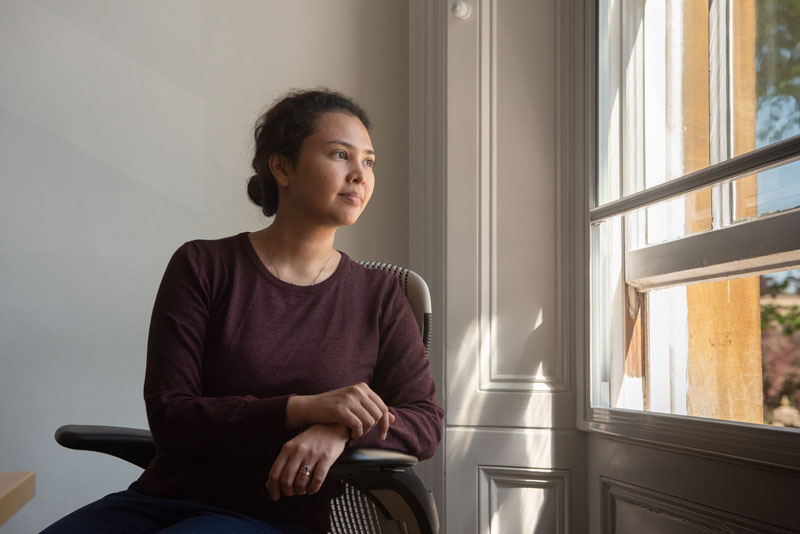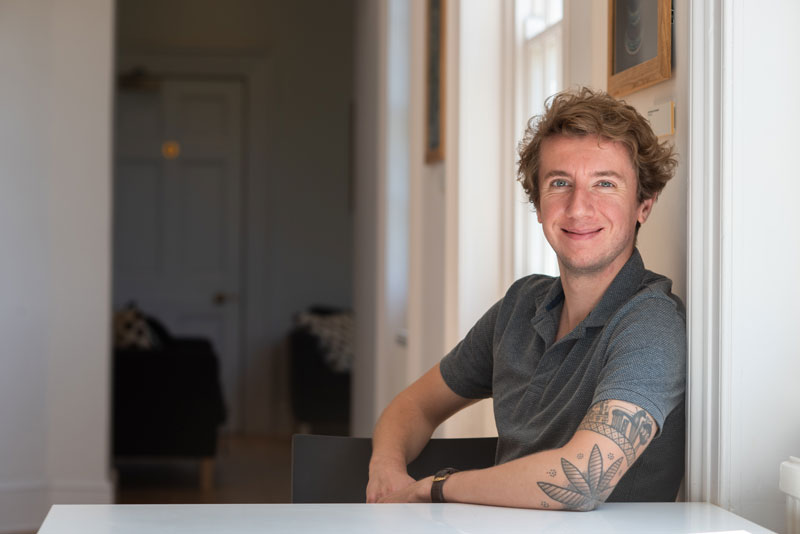Developing thought leaders in the humanities
Ertegun graduate scholarships are supporting students for the betterment of humanity.
The mission of the Ertegun Graduate Scholarship Programme in the Humanities is to fund and encourage graduate study in the humanities among scholars who have a plan to enlarge their knowledge, the desire to extend their vision and who seek the opportunity to exchange ideas. This vision of renowned philanthropist and designer Mica Ertegun reflects the values shared with her late husband, Atlantic Records founder Ahmet Ertegun. One of the great joys of their lives together was the study of history, music, languages, literature, art and archaeology. The Ertegun Programme is endowed in perpetuity, ensuring that graduate scholars in the humanities at Oxford will benefit from Mrs Ertegun’s philanthropy for generations to come.
Ertegun House is located on St Giles’, at the heart of the city of Oxford and the University. The classic Georgian building, with its modern, spacious and airy interior, provides a study and research space for more than 20 exceptional Ertegun Scholars. The Ertegun Programme is supported by the Senior Scholar in Residence, Professor Edmund Herzig.
‘We look at things differently, and not just within this building. This attitude towards knowledge, and how we teach other people about what we know, can be brought to anywhere else in the world’
The first Ertegun Scholars took up their places in autumn 2012. Since then, over 100 students have passed through the programme, with many going on to become leaders of global thought, opinion and positive action for the betterment of humanity. Examples include two doctoral scholars who already hold assistant professorships – one at Yale and the other at the University of South California – while others are in post-doctoral research positions at Oxford, Cambridge and the University of Chicago.
Current Ertegun Scholars hail from countries as far afield as Canada, Singapore, Romania, Morocco and Australia, with the programme bringing together students from all over the world to foster dialogue across academic disciplines, cultures and generations. A specially designed curriculum of student group lectures, concerts and cultural visits exposes scholars to a kaleidoscope of humanities-focused experiences, and weekly seminars provide a structured environment where they can exchange ideas and learn from each other. The Senior Scholar in Residence is their mentor and advisor, leading these activities and encouraging the scholars to set up their own – a feature that is unique to the Ertegun Programme.
 Debbie Chow at Ertegun House. Photo by John Cairns
Debbie Chow at Ertegun House. Photo by John Cairns
Debbie Chow, who moved from Malaysia to study for an MPhil in Linguistics, gains a great deal from the interactions with her Ertegun peers. She says: ‘I presented a seminar on my thesis and was surprised because the other scholars really challenged my methodology. They asked questions that my supervisor and I didn’t think of. I have definitely become a better thinker as a result of this experience and that is invaluable.’
The support that scholars receive from Ertegun staff, alumni, fellow students and the senior scholar is also significant. ‘Oxford is one of the top universities around so I didn’t know what the people would be like,’ says Debbie. ‘But they are genuinely helpful – it’s like a family.’
David Bell, from Sunderland in the north east of England, couldn’t agree more: ‘Once you’re here, the community is hugely important, and with 95% of my close friends at the moment not being British – and often not European – I also feel like my life has become a lot more global.’
David completed his MPhil in Classical Archaeology in summer 2019. His research was on horses in the Early Iron Age. ‘My focus was on Greece and the Aegean area, mostly between 1200 and 700 BC,’ he explains. ‘It’s not something that I ever expected I would do when I was 15 going to a comprehensive in Sunderland.’
 David Bell at Ertegun House. Photo by John Cairns
David Bell at Ertegun House. Photo by John Cairns
For David, the funding provided by the scholarship was crucial: ‘There was no chance I could come here without it,’ he says. ‘It’s such a luxury not to have any financial worries.’ Mica Ertegun’s gift is particularly important to him as it signifies a firm belief in the humanities as a force for good in a world where the vast majority of support goes to science and medicine. He says: ‘Showing that the humanities subjects are worth investing in… it’s refreshing.’
These are ambitious scholars, with proven track records of excellence in their fields – and, to be accepted onto the programme, they have to be. The competition is fierce: there were almost 4,000 applications to study graduate-level humanities courses at Oxford in 2017–18, and the vast majority of offer holders – around 1,500 – also applied for the Ertegun Scholarship. Around 15 places are usually awarded annually. Those who win the coveted places at Ertegun House are extraordinarily gifted and in a position to fulfil the vision of the scholarship.
Visit the Ertegun House website to find out more about the Ertegun Graduate Scholarship Programme in the Humanities.
GIVE TO ERTEGUN SCHOLARSHIPS